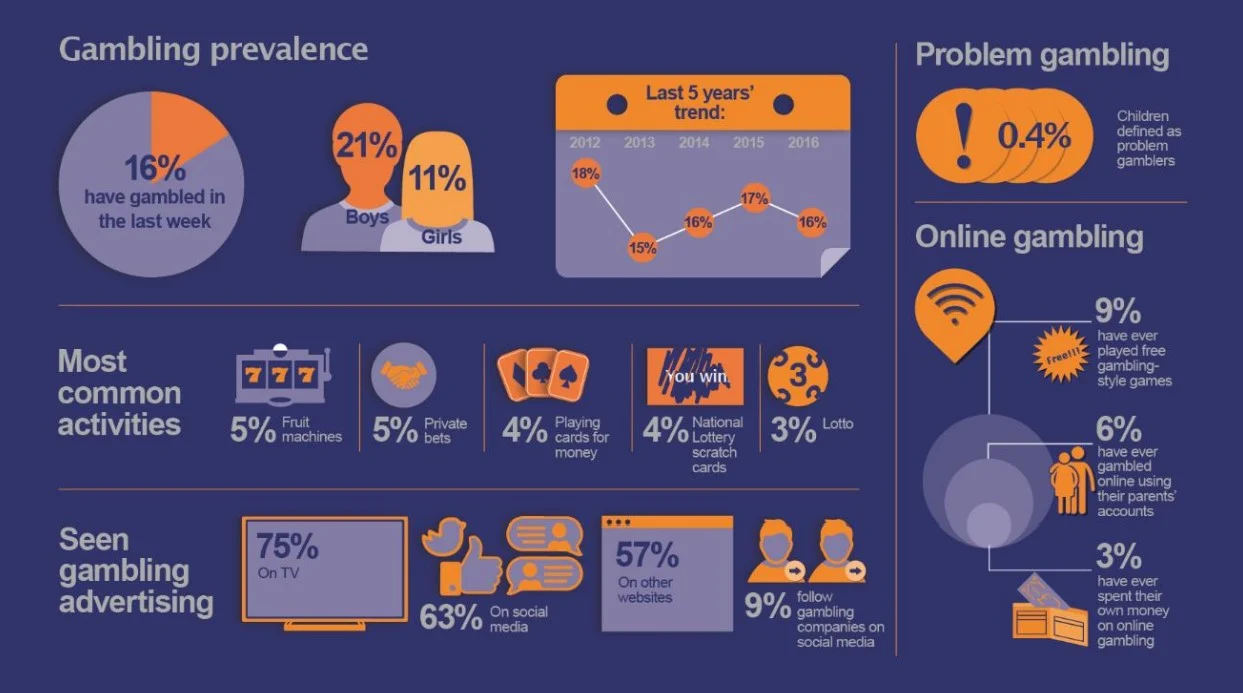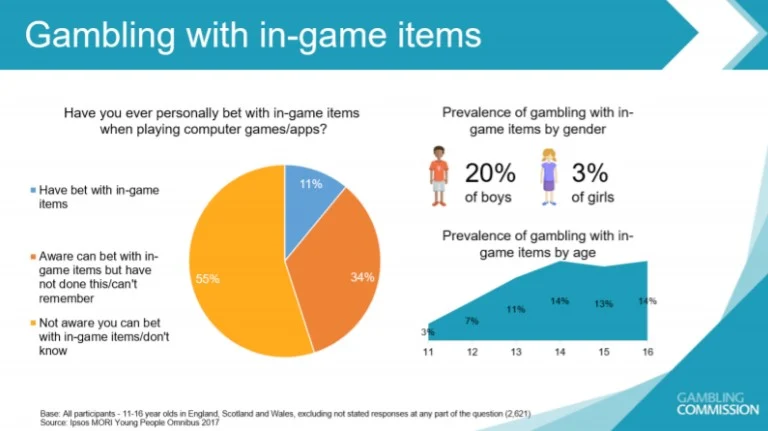Underage Gambling and other Vulnerable Populations

A major part of responsible gambling involves preventing underage gambling. There are several conditions in place that all operators who hold a license from the UK Gambling Commission (UKGC) must follow.
For instance, operators must check the age of customers who are suspected to be underage and must not deliberately appeal to children and young people by reflecting or associating with youth culture.
Still, in spite of the efforts being done to prevent minors from gambling, underage gambling happens all the time and it continues to be a growing concern in Great Britain, where the number of problem gamblers is on the rise.
Troubling underage gambling statistics

A “Young People and Gambling 2016 Report” from the UKGC indicated that 450,000 children are gambling in England and Wales every week.
According to a 2015 GamCare annual review, a third of all calls to the National Problem Gambling helpline are from individuals under the age of 24.
According to a 2015 National Lottery Commission Survey, 36% of children under the age of 16 played an online gambling-style game on Facebook in the last 7 days.
The same survey revealed that 64% of children under the age of 16 played an online gambling-style game on their tablet or smartphone in the last 7 days.
The same 2015 study found that the most common forms of gambling among young people include fruit machines, private betting and playing cards with friends.
According to the UKGC, only 9% of young people who experience gambling-related harm seek out help or support.
If you’d like to learn more about underage gambling and how to protect young people against gambling addiction, consider checking out the Young Gamblers Education Trust (YGAM) website. YGAM is a UK-based charity. Its mission is to “inform, educate and safeguard young people against problematic gambling and social gaming.”
Underage gambling and the risk of gambling addiction
According to Internet gambling research by Dr. Sally Gainsbury from the University of Sydney, adolescents and young adults appear to be gambling online at higher rates compared to the general adult population. This is thought to be due to this group’s familiarity with Internet technology.
Gainsbury notes that this is very concerning because gambling at a young age is associated with gambling problems. Furthermore, taking part in gambling activities at an early age may lead to increased engagement in gambling activities during adulthood.
Other research concerning gambling and young people, conducted by Senior Research Fellow and clinical psychologist Dr. Daniel King, from the University of Adelaide, suggests that new gambling technology may make gambling more accessible to young people and also more attractive. Among other possibilities, it could make gambling more ubiquitous and socially acceptable as well as provide an easy escape from everyday problems, like social isolation and depression.
What’s more, the findings from the UKGC’s Young People and Gambling 2016 report also shows that 9,000 of the 450,000 children gambling in England and Wales every week are likely to be problem gamblers.

Free-to-Play games and “gaming” addiction
Another area where addiction involving money appears to be a growing problem among youth is the Free-to-Play (F2P) mobile games industry. While F2P games are certainly not the same as gambling in the traditional sense (because players don’t win money in the end), competitive players who want to quickly improve their level of play will spend the money to get what they want, without thinking twice about it.
This can lead to these players dropping thousands in cash every month on these games. Although 90% of players don’t drop cash on F2P games, the few who spend consistently are far more likely to be at risk of developing an addiction.
This type of spending behavior is not unlike gambling addiction. In fact, many critics of F2P apps feel that a more accurate term for these games is “play-to-win”.

According to gambling researcher, Dr Ingo Feidler, an economist from the University of Hamburg, the F2P business model is similar to gambling. In a 2016 interview Feidler had with Vancouver’s NEWS 1130, he stated:
“We see in gambling that 50 percent of the revenues come from one percent of the players. It’s highly concentrated on a small amount of people who are at risk for having a gambling addiction. With pay-to-win games, 90 percent do not pay anything at all and one percent of the players pay so much that it can go up to $10,000 a month for Candy Crush.”
Fielder explained that it is the players who make up this one percent who are at risk for “gaming” addiction.
The bottom line, compulsive spending in this way can be just as problematic as compulsive gambling and there are no restrictions on young people playing F2P games and making in-app purchases.
Other vulnerable populations
Aside from young people, other vulnerable populations who are at risk of developing gambling addiction include the homeless.
According to a study conducted in the UK by researchers at Cambridge, and published in the Journal of gambling studies, homeless people are ten times more likely to be problem gamblers compared to the entire UK population. The study found that problem gambling effects 0.7% of the whole UK population, while 11.6% of homeless people were affected.
One of the reasons addiction may be higher among the homeless is that this population faces many issues, including drug and alcohol abuse. Individuals with a history of drug or alcohol abuse are at a greater risk of developing gambling problems. Another vulnerable population at a higher risk includes those with a history of mental illness.
More needs to be done to protect young people and other vulnerable populations from developing problematic gambling habits.
Availability depends on your country
















We use both automated and manual processes in order to verify the age of the customer registering the account and any player under the age of 18 who registers an account will have their account closed immediately.
We say NO to Underage Gambling . We do not allow players under the age of 18 to gamble. This is stated in our Terms and Conditions.
Trademark ™ 2025 PlayOJO. All rights reserved.
This site’s operations are regulated by the Malta Gaming Authority and is operated by SkillOnNet Ltd, Office 1/5297 Level G, Quantum House, 75, Abate Rigord Street, Ta’ Xbiex, XBX 1120, Malta, under the gaming license issued by the Malta Gaming Authority (license number MGA/CRP/171/2009/01) issued on 1 August 2018.
Gambling can be addictive, please play responsibly.
Apple and the Apple logo are trademarks of Apple Inc., registered in the U.S. and other countries. App Store is a service mark of Apple Inc., registered in the U.S. and other countries.
